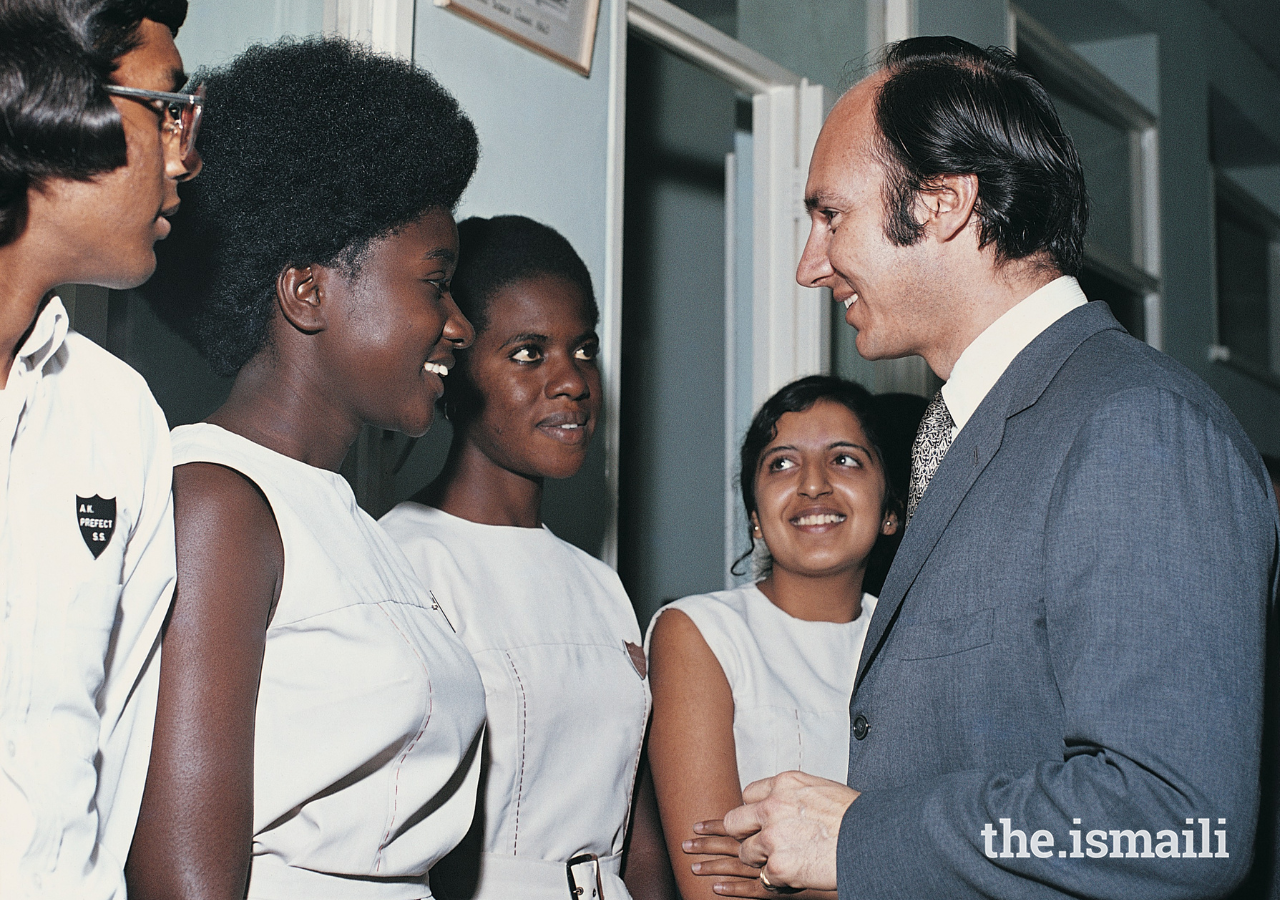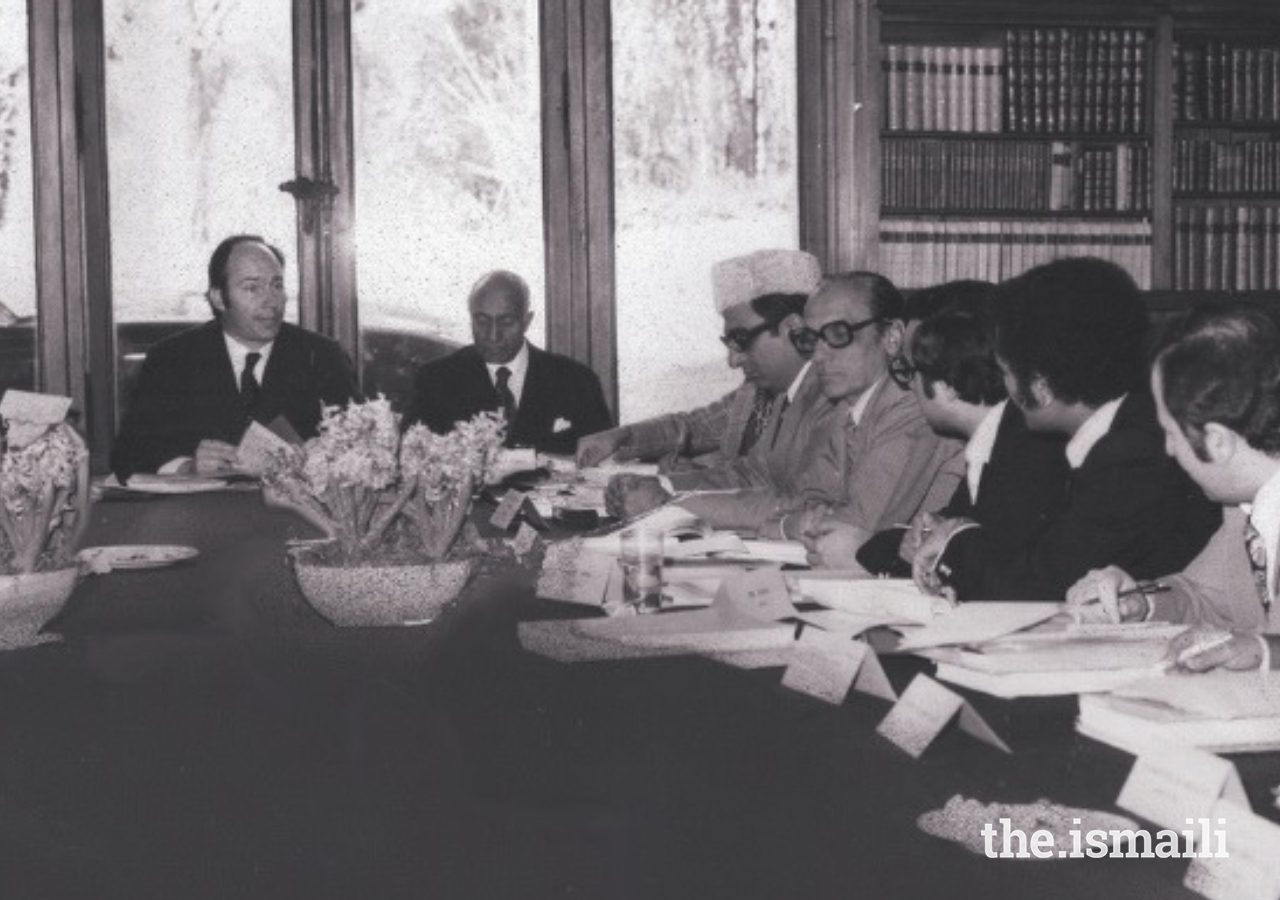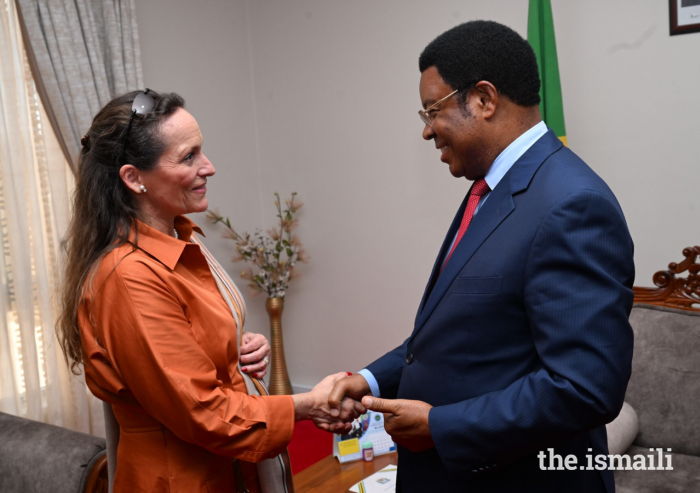Between 1967 and 1977, Mawlana Hazar Imam continued to navigate the Jamat through times of change and crisis. Political situations in Asia and Africa that significantly affected the Jamat included: Bangladesh gaining independence from Pakistan; and the expulsion of all Asians from Uganda, including thousands of Ismailis. Many of these refugees, as well as those who feared instability throughout East Africa, migrated to North America and Europe, with significant assistance and guidance from Mawlana Hazar Imam. For the first time in history, large communities of Ismailis became permanently settled in the Western world.
Throughout this period, Hazar Imam continued to establish institutions to improve quality of life in Africa and Asia. He inaugurated the Industrial Promotion Services (IPS) in Tanzania and Uganda, laid the foundation of the Aga Khan Medical College and Hospital in Karachi, opened the Serena Hotel in Nairobi, and announced the creation of the Aga Khan Award for Architecture. These development activities of the Imamat have always been underpinned by the Islamic ethic of caring for those in greatest need in society. In his 1967 Convocation Address at Peshawar University, Mawlana Hazar Imam warned that Muslim societies should not lose sight of these ethics, stating that:
“It would be traumatic if those pillars of the Islamic way of life, social justice, equality, humility and generosity, enjoined upon us all, were to lose their force or wide application in our young society. It must never be said generations hence, that in our greed for the material good of the rich West, we have forsaken our responsibilities to the poor, to the orphans, to the traveller, to the single woman.”
The theme of moral conflicts faced by Western nations and the threats these posed to Muslim societies recurred in the Imam’s guidance. In 1976, in his Presidential address to the International Seerat Conference in Karachi, Hazar Imam suggested that the values of the Holy Qur’an and the example of Prophet Muhammad (peace be upon him and his family) remain relevant to life in modern Muslim societies.
Mawlana Hazar Imam has also consistently emphasised the importance of education and the intellect, Allah’s greatest gift to humankind. In 1975, the decision was made to establish a significant institution for the study of the Jamat’s heritage and for improving the quality of religious education for the Jamat. The Institute of Ismaili Studies was opened in London in 1977 and continues to make important academic and educational contributions, including curriculum development, and the training of waezeen and professional religious education teachers.
On a personal level, this decade also saw the births of three of Hazar Imam’s children, Princess Zahra, Prince Rahim, and Prince Hussain, who were all born in Geneva, Switzerland. He also continued to make several visits, gracing the Jamats in East Africa, Pakistan, the UK, India, and France with Deedar. In his guidance, he emphasised not only worldly matters, but also the importance of faith, regularity in prayer, and living by the ethics of Islam to ensure a life of balance that enables us to fulfil our true potential. This was especially important considering the scientific and technological developments which would emerge in the following years.










